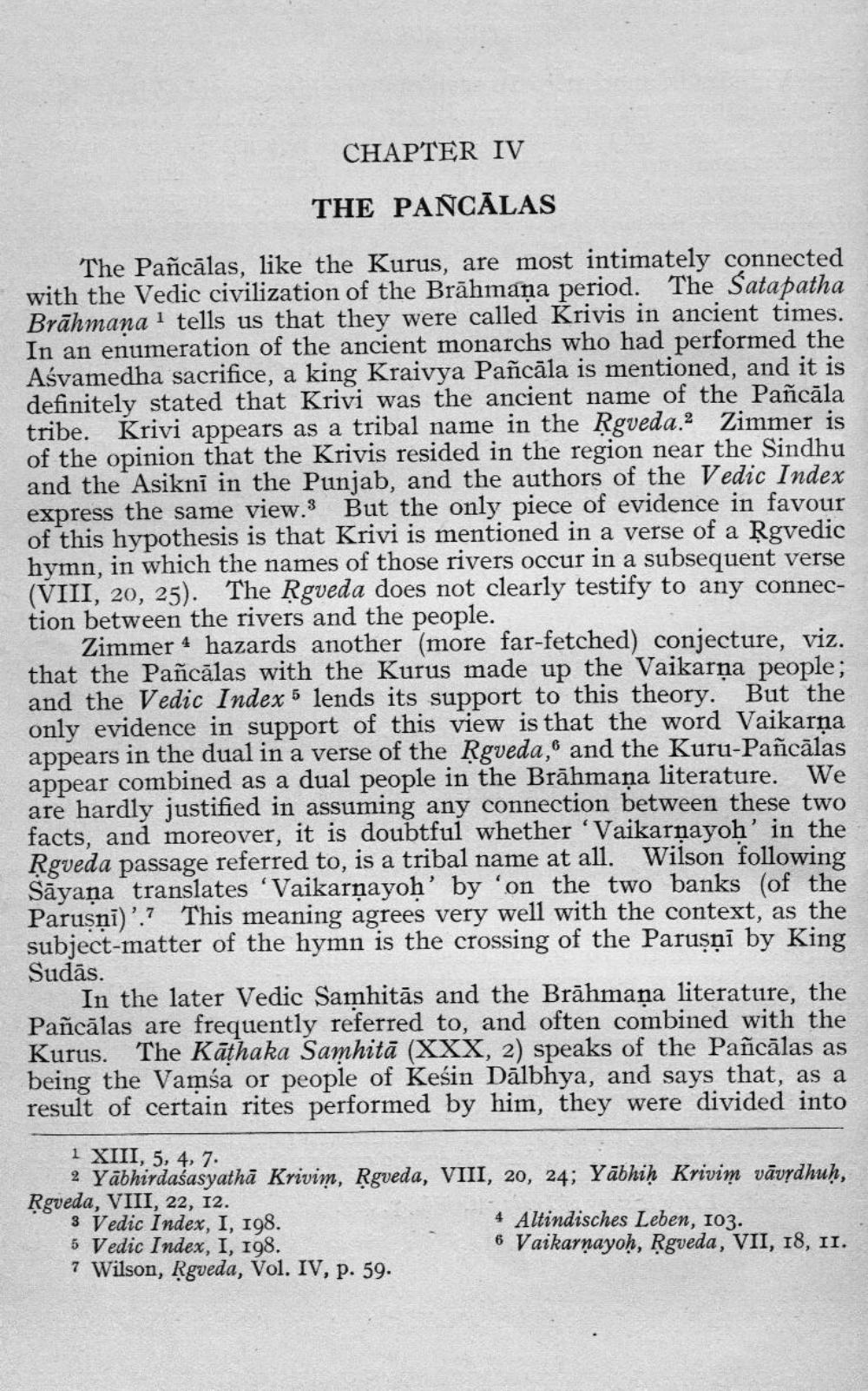________________
CHAPTER IV THE PANCĀLAS
The Pañcālas, like the Kurus, are most intimately connected with the Vedic civilization of the Brāhmaṇa period. The Satapatha Brāhmana' tells us that they were called Krivis in ancient times. In an enumeration of the ancient monarchs who had performed the Ašvamedha sacrifice, a king Kraivya Pañcāla is mentioned, and it is definitely stated that Krivi was the ancient name of the Pañcāla tribe. Krivi appears as a tribal name in the Rgveda.2 Zimmer is of the opinion that the Krivis resided in the region near the Sindhu and the Asikni in the Punjab, and the authors of the Vedic Index express the same view. But the only piece of evidence in favour of this hypothesis is that Krivi is mentioned in a verse of a Rgvedic hyi which the names of those rivers occur in a subsequent verse (VIII. 20. 25). The Rgveda does not clearly testify to any connection between the rivers and the people.
Zimmer 4 hazards another (more far-fetched) conjecture, viz. that the Pañcālas with the Kurus made up the Vaikarna people; and the Vedic Index 5 lends its support to this theory. But the only evidence in support of this view is that the word Vaikarna appears in the dual in a verse of the Rgveda, and the Kuru-Pañcālas appear combined as a dual people in the Brāhmaṇa literature. We are hardly justified in assuming any connection between these two facts, and moreover, it is doubtful whether Vaikarnayoh' in the Rgveda passage referred to, is a tribal name at all. Wilson following Sāyaṇa translates “Vaikarņayoh' by 'on the two banks (of the Parusni)'.? This meaning agrees very well with the context, as the subject-matter of the hymn is the crossing of the Paruşņi by King Sudās.
In the later Vedic Samhitās and the Brāhmaṇa literature, the Pañcālas are frequently referred to, and often combined with the Kurus. The Kathaka Samhitā (XXX, 2) speaks of the Pañcālas as being the Vamsa or people of Kesin Dalbhya, and says that, as a result of certain rites performed by him, they were divided into
1 XIII, 5, 4, 7.
2 Yābhirdaśasyathā Krivim, Ķgveda, VIII, 20, 24; Yābhiḥ Krivim vāvędhuḥ, Rgveda, VIII, 22, 12. 3 Vedic Index, I, 198.
4 Altindisches Leben, 103. 5 Vedic Index, I, 198.
6 Vaikarnayoh, Rgveda, VII, 18, II. 7 Wilson, Rgveda, Vol. IV, p. 59.




